Managing diabetes can often feel like an overwhelming task, but creating a personalized diabetes management plan can make all the difference. This guide will help you outline crucial components, from monitoring blood sugar levels to dietary choices and exercise routines. Understanding your specific needs and working with healthcare professionals can empower you to take control of your health. So, let's dive in and explore effective strategies to manage diabetes together!

Personal Information
A comprehensive diabetes management plan includes personal information essential for effective management and communication between healthcare professionals and patients. Key elements consist of the patient's name, date of birth, and medical history, highlighting any previous diabetes-related complications, such as neuropathy (nerve damage) or retinopathy (eye damage). Contact details for the primary healthcare provider, including name and clinic address, should be clearly stated. Important health metrics, such as current blood glucose levels (should be monitored daily for effective control) and HbA1c (glycated hemoglobin, which reflects average blood glucose over the past two to three months), need inclusion. Furthermore, medication details, including name, dosage, and frequency, provide clarity on the treatment regimen. Lifestyle factors, such as diet and exercise routines along with any relevant allergies, play a crucial role in formulating a tailored management strategy.
Medical History
Diabetes management requires comprehensive understanding of individual medical history, assessing factors such as age, weight, and previous health issues. Relevant conditions include hypertension, cardiovascular diseases, or obesity, all of which can influence blood glucose levels. Regular monitoring of Hemoglobin A1c (a measure of average blood sugar over three months) is critical; target levels typically range below 7% for most adults. Detailed family medical history is significant; genetic predisposition to Type 2 diabetes poses a risk. Medications such as Metformin for Type 2 diabetes or insulin therapy for Type 1 diabetes should be documented. Lifestyle factors including diet, physical activity, and stress management play essential roles in overall management, allowing for adjustments tailored to individual needs at specialist clinics or through remote monitoring technology, enhancing treatment efficacy and quality of life.
Treatment Goals
A diabetes management plan focuses on individualized treatment goals to effectively control blood glucose levels and minimize complications. Target blood glucose levels typically aim for fasting readings between 70-130 mg/dL (milligrams per deciliter) and post-meal levels below 180 mg/dL. Weight management strategies may include maintaining a body mass index (BMI) below 25 for optimal health. Routine physical activity recommendations suggest at least 150 minutes of moderate aerobic exercise weekly, such as brisk walking or cycling, promoting cardiovascular health. Regular monitoring of HbA1c levels, with a goal of less than 7%, provides insight into long-term glucose control, reflecting average blood sugar over approximately three months. Adherence to prescribed medications, including insulin or oral hypoglycemics, is crucial, with careful attention to side effects and interactions. Nutritional guidelines emphasize a balanced diet rich in whole grains, fruits, vegetables, and lean proteins while limiting processed sugars and saturated fats, fostering overall well-being. Regular follow-ups with healthcare providers, including endocrinologists and dietitians, ensure ongoing assessment and adjustment of the treatment plan as needed.
Medication Details
Medication management for diabetes involves careful monitoring and administration of various pharmacological agents designed to regulate blood glucose levels. Common medications include Metformin, utilized for type 2 diabetes management, which enhances insulin sensitivity and decreases hepatic glucose production. Insulin injections, such as Rapid-acting Insulin (e.g., Lispro), provide immediate assistance in lowering blood sugar levels, particularly around mealtimes. Long-acting Insulin (e.g., Glargine) maintains basal glucose control throughout the day. Additionally, newer classes like SGLT-2 inhibitors, such as Dapagliflozin, promote glucose excretion through urine, thereby reducing blood sugar levels. Dosage schedules often require adjustments based on blood glucose monitoring results, diet variations, and physical activity, with frequency of blood tests generally recommended twice weekly. Regular consultations with healthcare providers ensure optimal medication regimens tailored to individual patient needs, aiming to prevent complications such as neuropathy and cardiovascular diseases often associated with uncontrolled diabetes.
Lifestyle Recommendations
A well-rounded diabetes management plan emphasizes lifestyle recommendations crucial for maintaining optimal blood sugar levels. These recommendations include incorporating regular physical activity, such as brisk walking for at least 150 minutes weekly, which can enhance insulin sensitivity and promote weight management. Nutritional choices should focus on a balanced diet rich in whole grains, lean proteins, and non-starchy vegetables, aiming for a carbohydrate intake of about 45-60 grams per meal to stabilize glucose levels. Monitoring blood glucose regularly, ideally through devices like continuous glucose monitors, provides real-time insights into how different foods and activities impact blood sugar. Engaging in stress-reduction techniques like mindfulness or yoga can help maintain emotional balance, which is vital for overall wellbeing. Regular check-ups with healthcare professionals, including biannual eye exams, blood pressure assessments, and annual kidney function tests, are essential to prevent complications associated with diabetes.

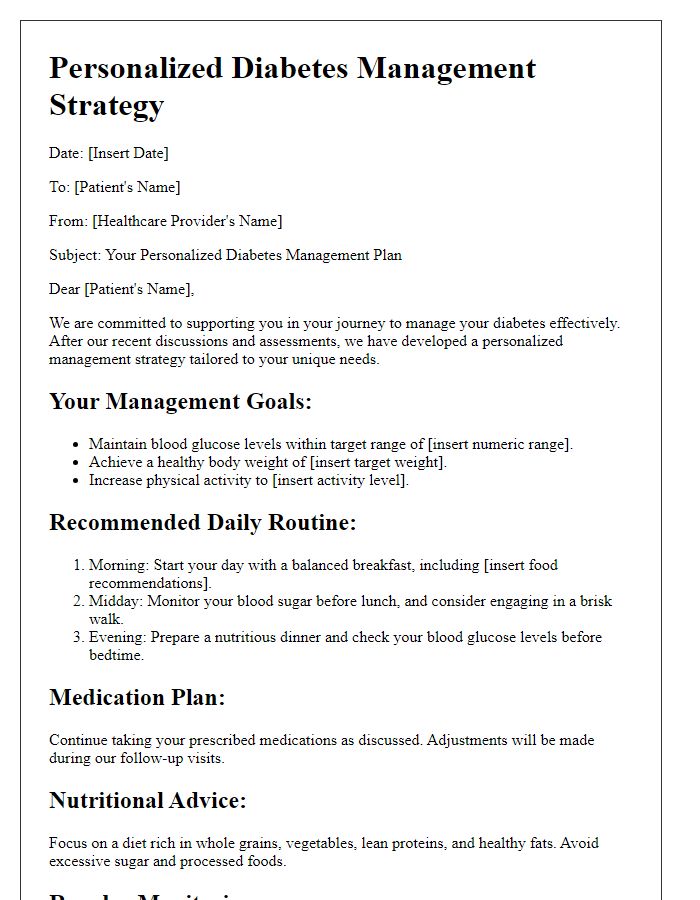
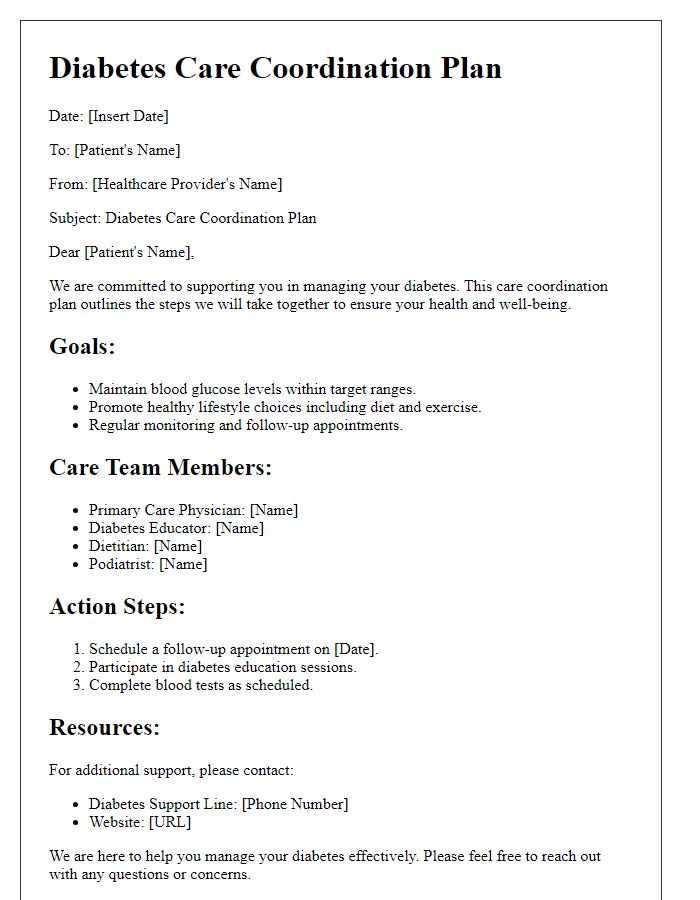
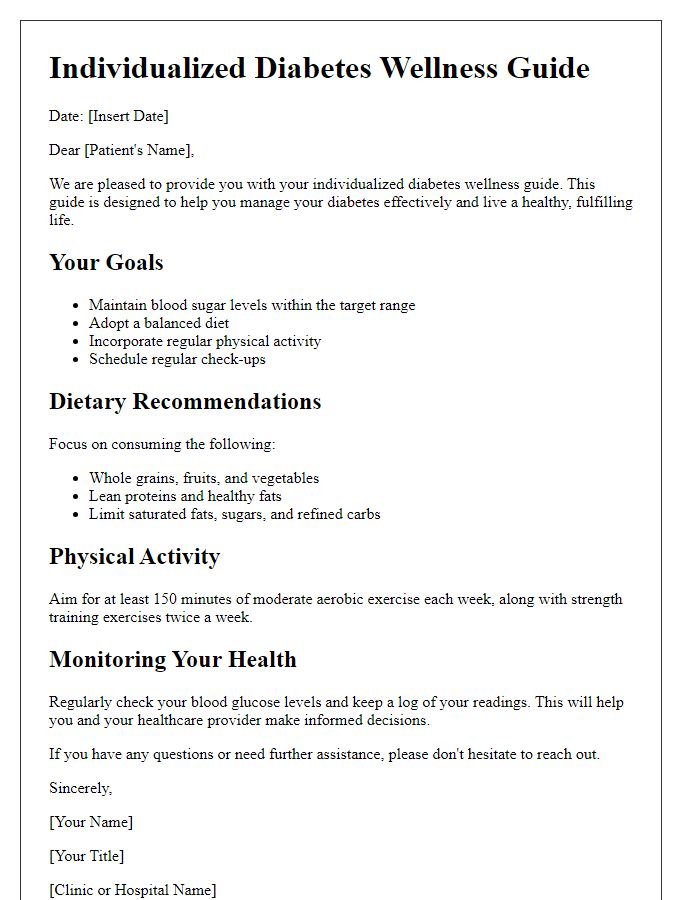
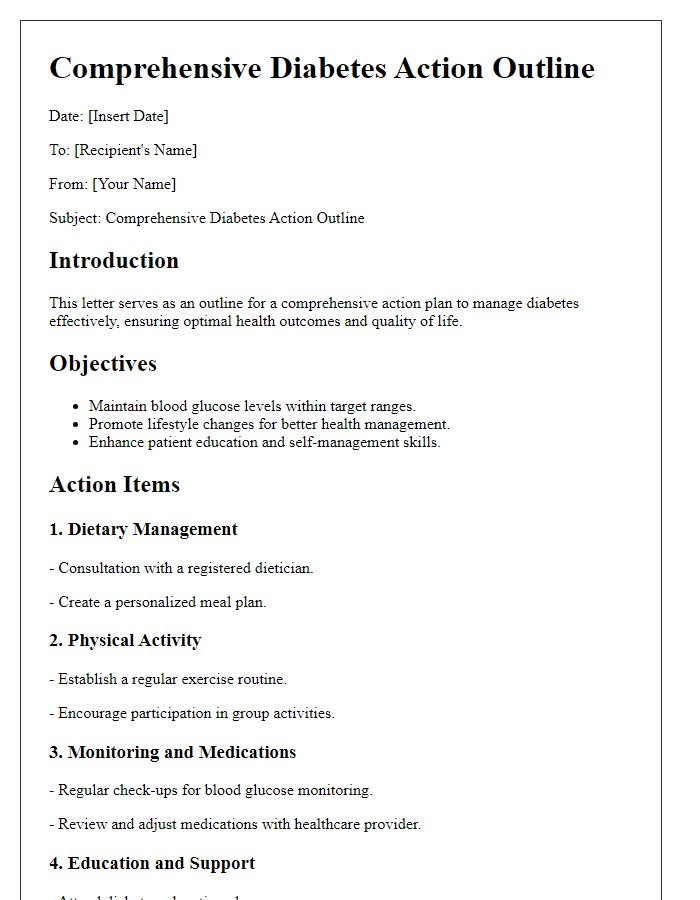
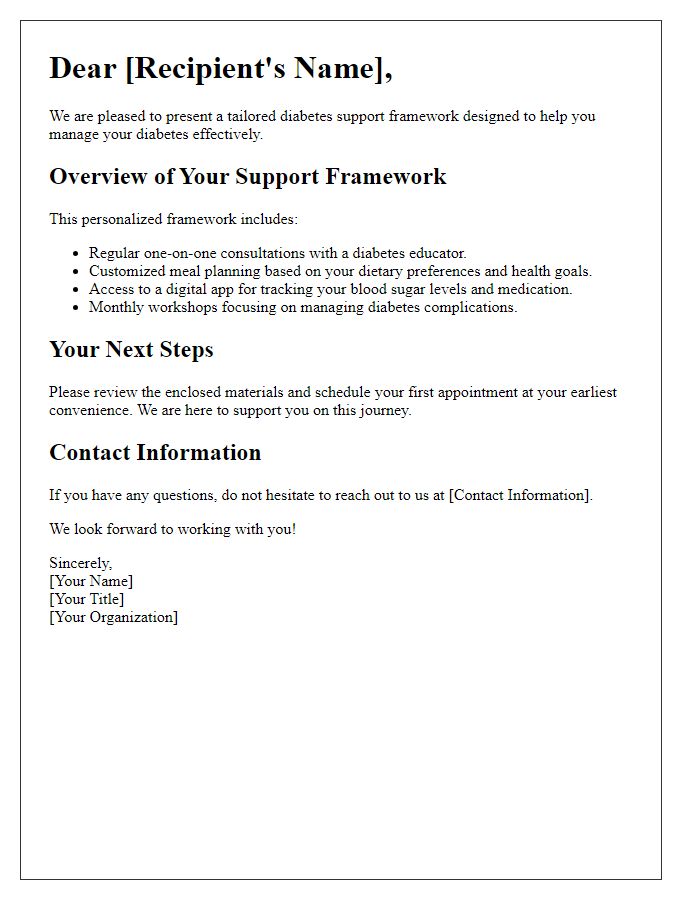
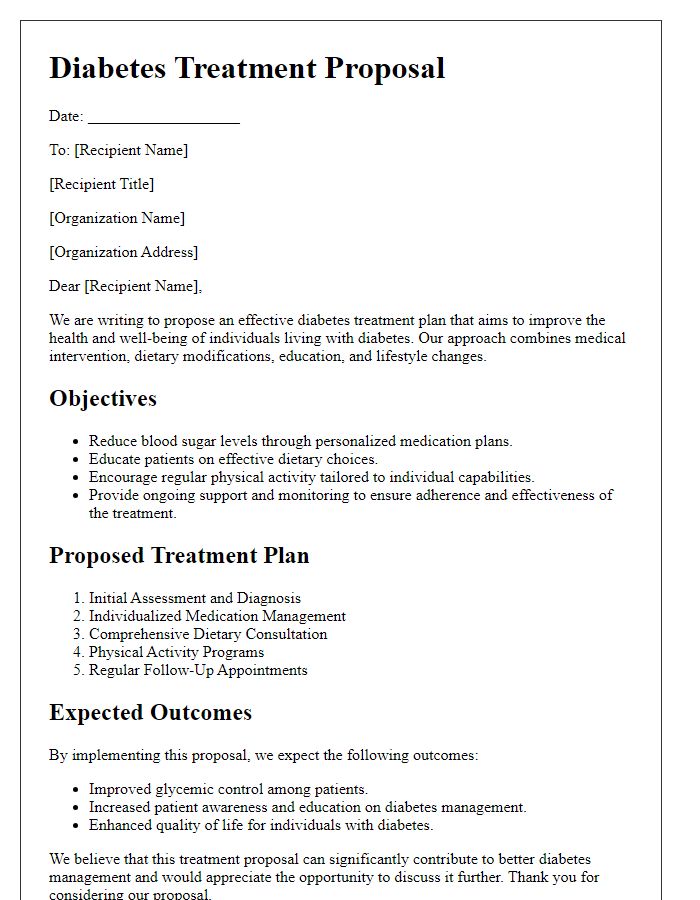
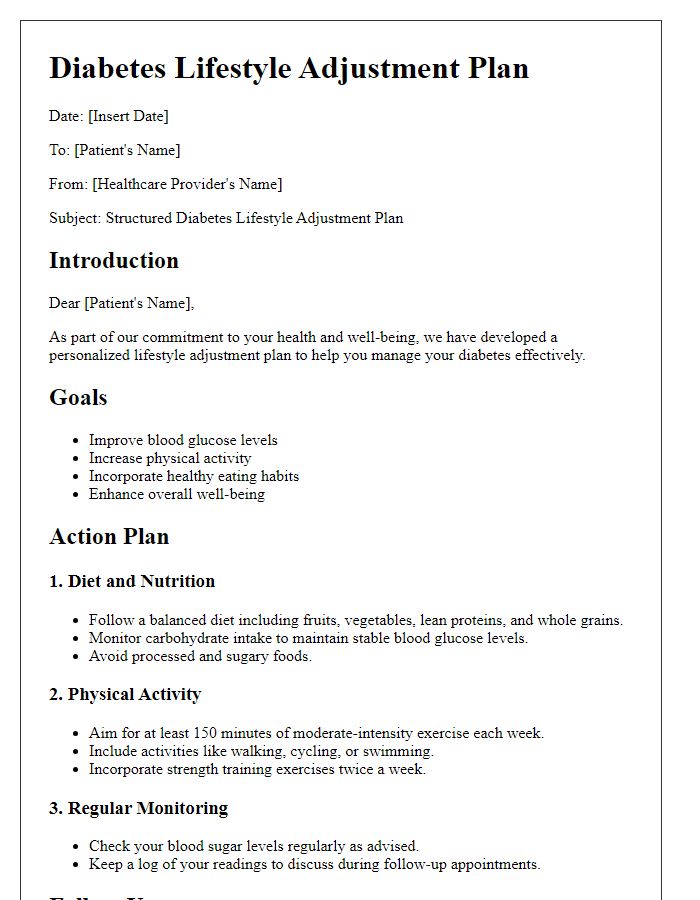
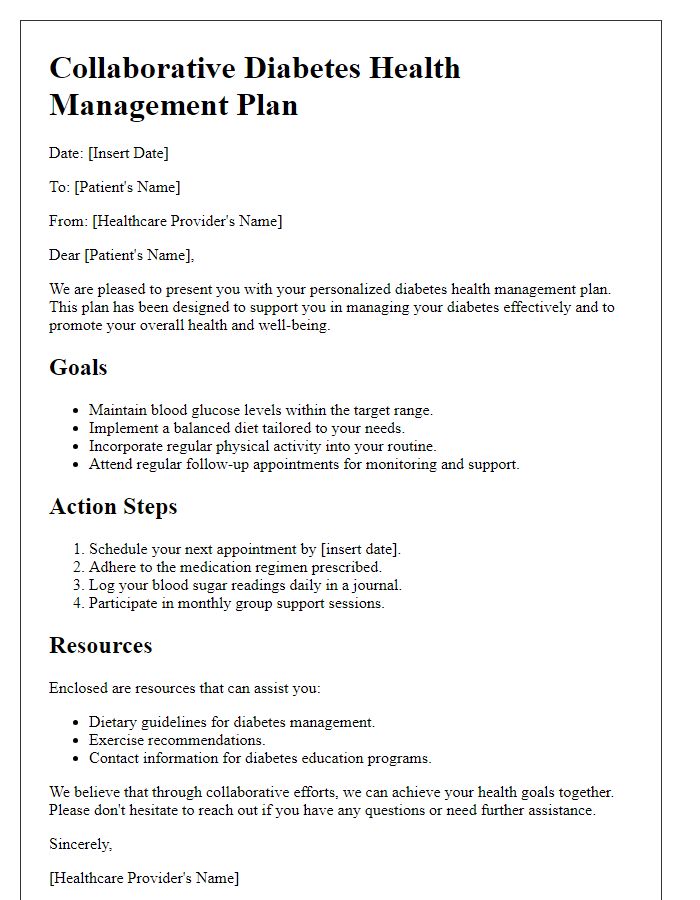
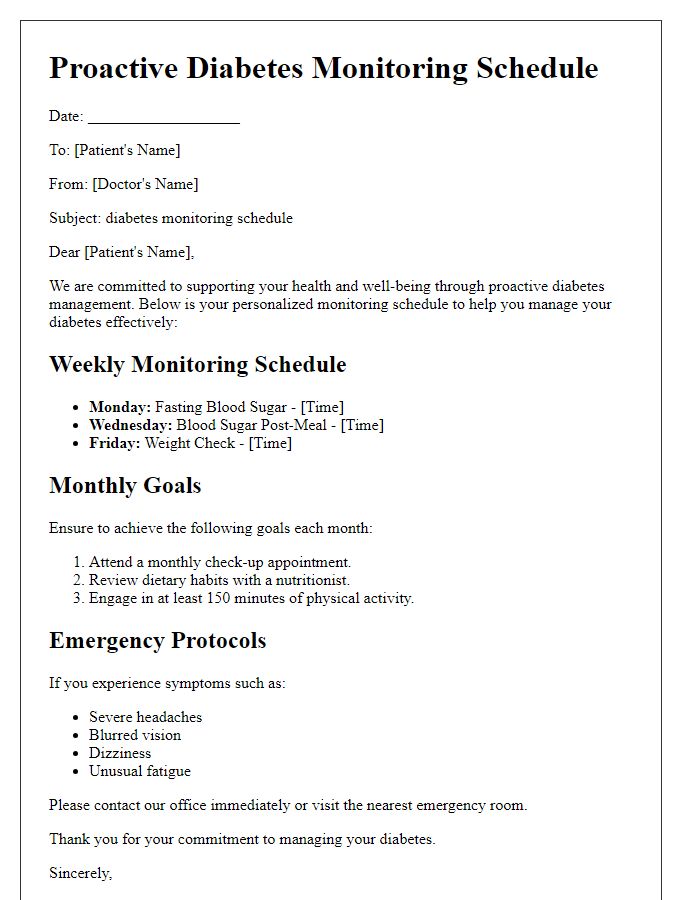
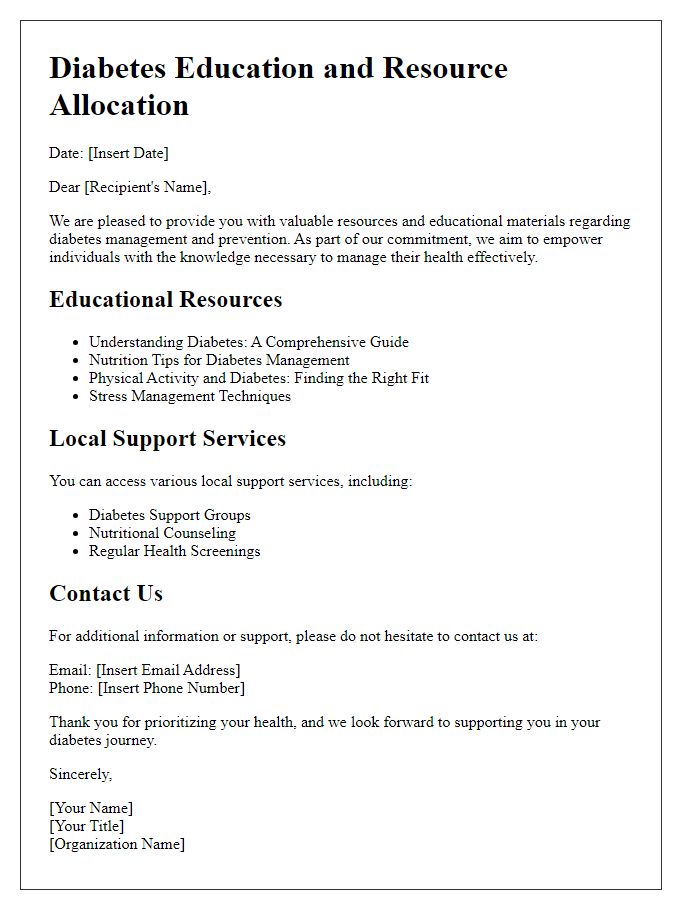


Comments